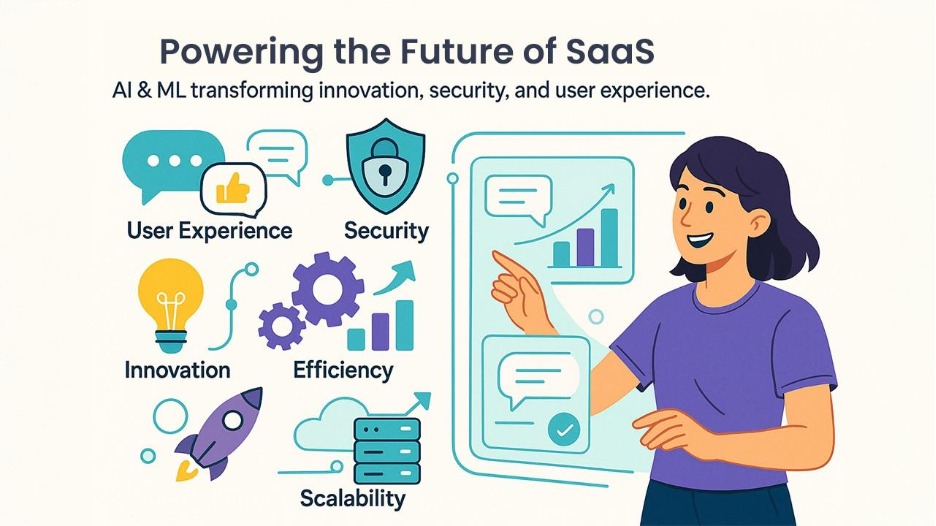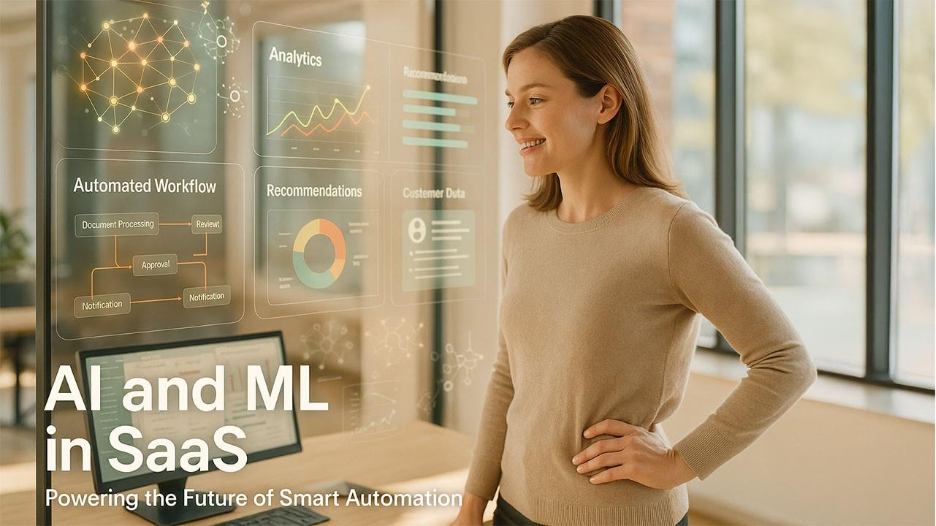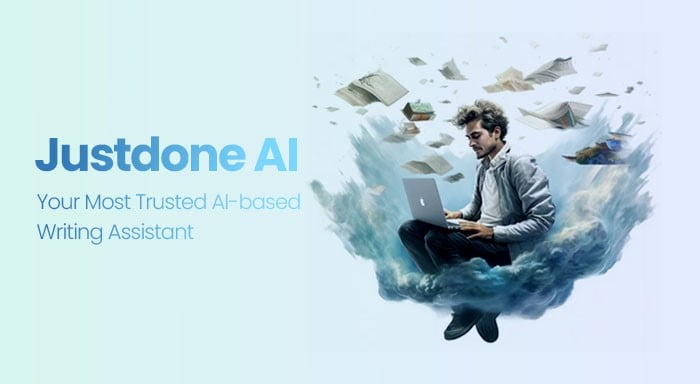Software as a Service (SaaS) has revolutionized how companies create, distribute, and grow their digital products. From simple subscription-based applications to enterprise-grade platforms, SaaS continues to evolve at a rapid pace. Today, we see the next major advancement in this area by Artificial Intelligence (AI) and Machine Learning (ML) technology. These are fundamentally changing the function of SaaS applications, making them more automated, intelligent, and personalized in their nature, not just a value adds.
For businesses that adopt saas development services, the integration of AI and ML is not an option but a necessity. SaaS solutions built with AI capabilities can enable companies to cut down on operational processes and reduce costs while offering personalized experiences to their customers. Be it automated workflows, intelligent recommendations, or predictive analytics, AI-powered SaaS changes the way organizations interact with digital tools.
At the same time, a partnership with an experienced AI software development company provides businesses with the required competency to embed smart algorithms into their SaaS products. These companies help bridge the gap between traditional software functionality and intelligent, self-improving systems that adapt in real time to user behavior, market fluctuations, and business needs. Thus, new generations of SaaS applications are smarter, more secure, and more customer-centric than ever.
The Role of AI in Modern SaaS Development
AI has rapidly become a foundational component for SaaS innovation. In its most basic form, AI allows applications to think more human-like, make decisions, rapidly analyze huge volumes of information, and find patterns which, if done by a human, may have taken weeks to uncover. The ecosystem incorporates AI across multiple aspects:
- Process Automation: Automation powered by AI takes over any repetitive task; an example would be invoice processing or entire approvals in a workflow. This minimizes human error and generates time back from unwanted jobs.
- Intelligent Chatbots: Many SaaS platforms now come with built-in AI chatbots that can respond to customer queries instantly, improving user satisfaction and reducing the load on support teams.
- Data-Driven Insights: AI helps SaaS providers turn raw data into actionable intelligence, making it easier to track user behaviour and predict future trends.
By embedding these capabilities directly into SaaS platforms, businesses gain efficiency and competitive advantage while offering more value to customers.
Machine Learning and Personalization
While AI focuses on automation and intelligence, Machine Learning takes SaaS development a step further by enabling applications to learn and improve over time. Explore how AI and ML are transforming SaaS development with automation, personalization, and intelligent insights for better, scalable digital solutions.
In the same way, e-commerce SaaS solutions leverage ML models to deliver personalized product recommendations, similar to streaming services that provide individualized content.
Personalization is no longer a luxury; it is an expectation. Customers want SaaS applications that understand their needs, adapt to their behaviors, and provide relevant experiences without manual input. ML makes sure that SaaS solutions are not static-they evolve with user interactions.
Key Benefits of AI and ML in SaaS Development

The integration of AI/ML in SaaS platforms ripples across to developers and end users in the benefits derived.
- Improved User Experience: AI-powered interfaces anticipate user needs, while ML algorithms make recommendations on either features or content to enhance the level of user engagement.
- Improved Security: The AI systems monitor the behavior across the platform and detect any anomaly to prevent fraudulent activities.
- Operational Efficiency: Automated workflows minimize human intervention and enable teams to focus on strategic growth rather than routine tasks.
- Scalability: AI makes SaaS solutions more adaptable to perform even when the number of users and volumes of data grow.
- Faster Innovation: AI insights can help businesses identify where the gaps in service provision are and will expedite the development of new features.
Real-World Examples of AI and ML in SaaS
AI and ML already change how some of the most popular SaaS platforms work:
- CRM Platforms: Customer Relationship Management tools use AI-driven analytics for predicting customer behavior and recommending next best steps.
- Marketing Automation Tools: Platforms such as HubSpot apply ML models to optimize campaign performance and personalize outreach.
- HR SaaS Solutions: Recruitment software uses AI to screen resumes, shortlist candidates, and even assess cultural fit.
- E-commerce SaaS: Shopify incorporates recommendations powered by AI that boost product discovery and conversions.
- Collaboration Tools: SaaS solutions, including Slack and Microsoft Teams, use ML in suggesting relevant files, automating reminders, and improving the productivity of teams.
Disadvantages of AI-Powered SaaS Development
Despite these benefits, the implementation of AI and ML in SaaS development is not so straightforward:
- Data Privacy Concerns: Most of the SaaS applications have sensitive data about their customers, which the AI models will need to learn in order to continuously improve themselves. Ensuring compliance in data protection regulations becomes very important.
- Integration Complexity: Integrating such AI and ML capabilities within existing SaaS platforms requires deep technological capabilities with strong infrastructure.
- Biases and Accuracy: AI algorithms mirror biases that might be present in their training data, leading to biased performances or skewed results. Continuous monitoring and fine tuning are needed.
- High Initial Investment: While AI promises efficiency in the longer term, initial investments in development, training models, and infrastructure can be very costly.
SaaS Development: The Future with AI and ML
The future of SaaS is definitely tagged to AI and ML. The emerging trends indicate that the next generation of SaaS applications will have a strong focus on:
- Low-Code and No-Code Platforms: AI will make it possible for non-technical users to create and customize applications using natural language as a form of input.
- Hyper-personalization: SaaS tools will offer experiences tailored to individual users, not just businesses.
- Integration of IoT and Edge Computing: SaaS is going to combine more and more with emerging technologies that will enable real-time data processing closer to the source.
Conclusion
Artificial intelligence and machine learning are no longer technologies that have yet to establish themselves; rather, they have developed into critical, motivating forces to modern SaaS development. By automating tasks that would ordinarily be performed by a human, and by automating personalized user experiences, they enable SaaS platforms to be more efficient, scalable and customer-centric.
For the companies investing in the SaaS solution, the question of adoption of AI and ML is not that of innovation; it is one of survival in the ever-expanding competitive digital space. Your business can engage the right talent, take a fresh approach to business strategy, and leverage the full potential of intelligent SaaS to find itself on the leading edge of the next wave of digital transformation.
Author Bio : Bhumi Patel has vast experience in Project Execution & Operation management in multiple industries. Bhumi started her career in 2007 as an operation coordinator. After that she moved to Australia and started working as a Project Coordinator/ Management in 2013. Currently, she is the Client Partner - AUSTRALIA | NEW ZEALAND at Bytes Technolab - a leading MVP Development Company in Australia, where she works closely with clients to ensure smooth communication and project execution also forming long term partnerships. Bhumi obtained a Master of Business Administration (MBA) in Marketing & Finance between 2005 and 2007.








